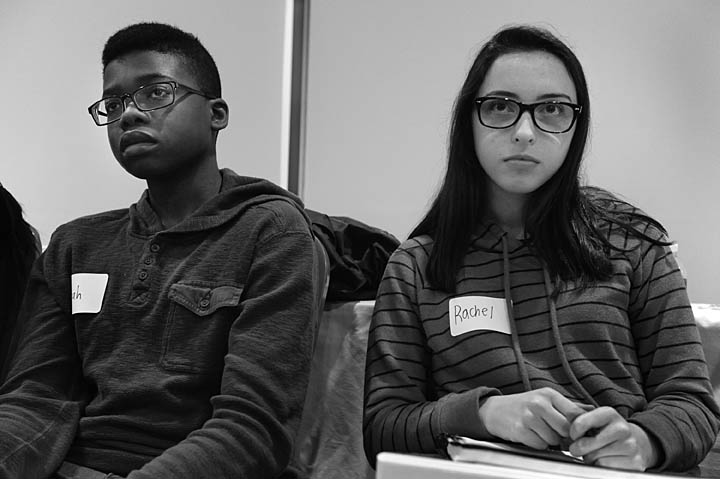I got to meet and photograph Pete Seeger on assignment a couple of times. Once at the AFL-CIO Meany Center, where he was one of several teachers I documented at a labor song workshop, and the most extensive was an assignment for, of all places, the American Psychological Association.
The producer from APA for the session was a youngish African-American DC native, who knew only a very little of Pete's history and music. We were doing the shoot on Capitol Hill, where Pete's family and lived for a time in the 1920's or 30's.
Pete gave her a gentle and respectful street-by-street history of what and where DC was segregated back in his younger days, and what and how things were done to protest it.
And why.
I recall him sort of interviewing her, about her family's background and history, too, bringing her into the circle.
I mostly remember he was quite excited to tell me of the efforts of a municipality in Brazil
He was still a believer in transformation, its necessity, its possibility, in people power. In hope.
I also remember him unceremoniously just dropping his rather famous banjo, with the words "This machine surrounds hate and forces it to surrender" emblazoned on the drum, into a soft evergreen bush in someone's front yard while he changed his coat, then retrieving the banjo from the branches, where it had nearly fallen out of sight. (His friend Woody Guthrie's guitar had "This Machine Kills Fascists" stenciled on it.
Pete's motto was, shall we say… gentler.
I also recall he was simply a pleasant person to be around, very un-prepossessing, and though he had a reputation for being somewhat shy and at times taciturn, he was quite chatty with me and my colleague.
Interestingly, no one recognized him on the street, even though he was being honored that week by the Library of Congress. He was quite modest in his dress & carriage. I liked that. A lot.
We also spent time with his wife Toshi. She kind of ran his schedule. Pete was still the college dropout kid in some ways, an earnest fresh-faced young troubadour singing & playing his guitar to anyone who'd listen, out to save the world one song at a time.
Even though she was about two feet shorter than him (Pete was unusually tall), Toshi pretty much ran their daily business, throwing out a hooked fishing line periodically and firmly reeling Pete back into doing what he needed to be doing.
They were married about 70 years, until her death last year. They obviously loved one another very much.
Mahatma. A tzadik. A great soul.
He will be missed.
Now where is that hammer?



























